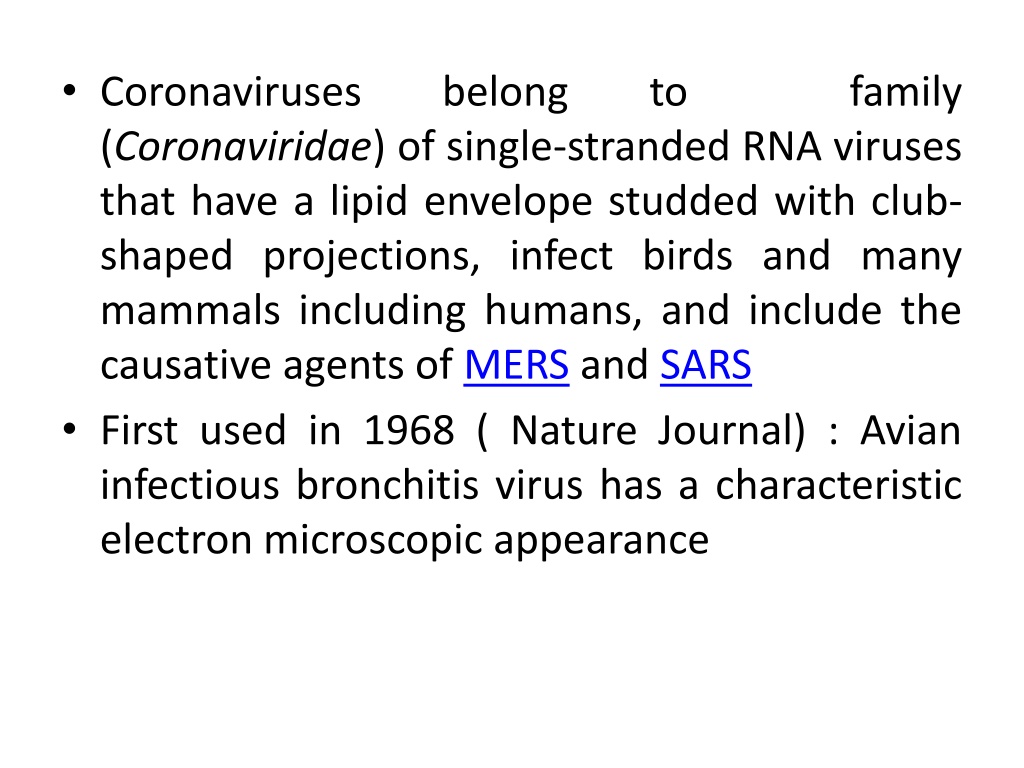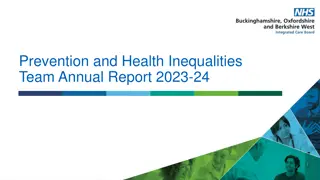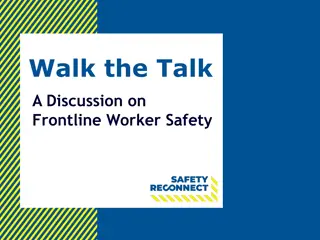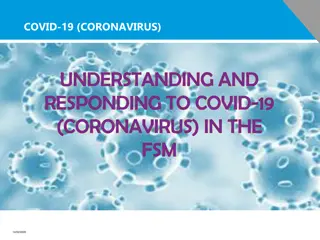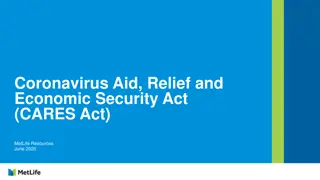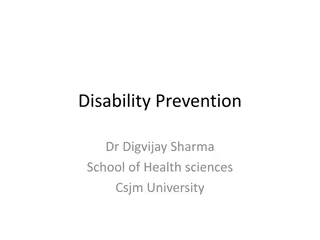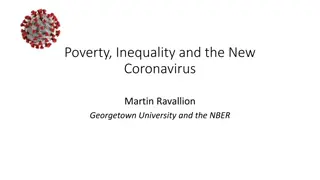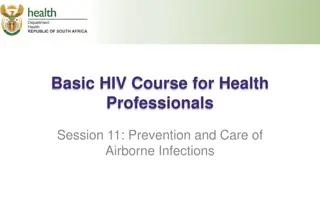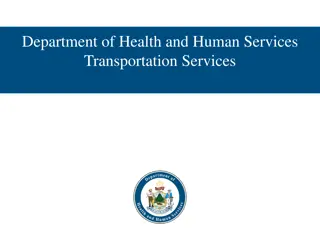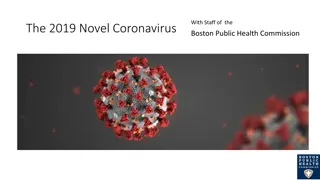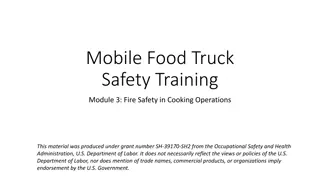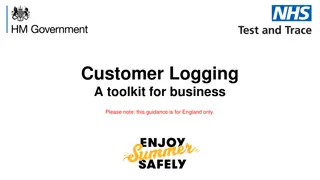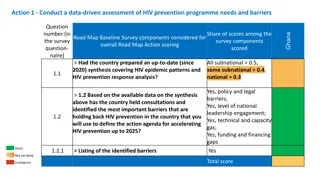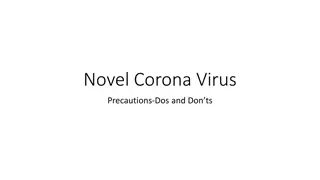Understanding Coronavirus: Prevention and Safety Measures
Coronaviruses are single-stranded RNA viruses that infect birds, mammals, and humans. They can cause respiratory and enteric diseases, hepatitis, and neurologic issues. Initially of veterinary interest, coronavirus spread has escalated into human-to-human transmission. WHO recommends handwashing, cough etiquette, avoiding contact with sick individuals, and practicing food safety to prevent the spread of the virus.
Download Presentation

Please find below an Image/Link to download the presentation.
The content on the website is provided AS IS for your information and personal use only. It may not be sold, licensed, or shared on other websites without obtaining consent from the author. Download presentation by click this link. If you encounter any issues during the download, it is possible that the publisher has removed the file from their server.
E N D
Presentation Transcript
Coronaviruses (Coronaviridae) of single-stranded RNA viruses that have a lipid envelope studded with club- shaped projections, infect birds and many mammals including humans, and include the causative agents of MERS and SARS First used in 1968 ( Nature Journal) : Avian infectious bronchitis virus has a characteristic electron microscopic appearance belong to family
Before gaining importance for public health in 2003, the diseases associated with corona viruses were mainly of veterinary interest. Corona viruses infect a wide variety of mammals and birds, causing respiratory and enteric diseases and, in some rare cases, hepatitis and neurologic disease. Initially, many cases reported in the outbreak in Wuhan, China had some link to a large seafood and animal and animal market, suggesting animal-to- person spread (2/2/2020-WHO).
However, with increased number of cases being reported without any history of exposure to animal markets, suggests person- to-person transmission. Considering the airborne spread through droplets as well as through inanimate objects coming in contact with suspected cases; the spread of the infection can be controlled by following certain precautionary measures as laid down by the WHO
WHOS CORONAVIRUS: GUIDES TO PREVENT SPREAD OF A. Protect yourself from getting sick: Wash your hands with soap and water: When they are visibly dirty After coughing or sneezing When caring for the sick Before, during and after you prepare food After using the toilet After handling animals or animal waste
When coughing and sneezing; cover mouth and nose with flexed elbow or tissue. Don t forget to throw the tissue into a closed bin. Avoid close contact when you are experiencing cough and fever and seek immediate medical care. Avoid spitting in public.
B. Food safety: Avoid consuming sick animals Use different chopping boards and knives for raw meat and cooked food. Wash your hands regularly while handling food. Use properly cooked food.
Travel safety: Avoid travel if you have fever and cough and seek medical care immediately. Share your travel history with the physician. While travelling; avoid close contact with symptomatic people having cough and fever. During travel use tissue to cover mouth and nose if you cough or sneeze. While travelling if you become sick; immediately sick medical attention by informing the crew staff. Eat only well cooked food while travelling.
D. Regarding pet animals: Wash your hands regularly with soap and water while handling pets.
E. Vulnerable population: Older people, and people with pre-existing medical conditions (like asthma, diabetes, pneumonia, heart disease) appear to be more vulnerable to becoming ill with the virus. They should regularly follow good hand hygiene and good respiratory hygiene.
WHO has clearly suggested that wearing a medical mask is one of the prevention measures to limit the spread of certain respiratory diseases, including 2019- nCoV, in affected areas. However, the use of a mask alone is insufficient to provide an adequate level of protection and othr equally relevant measures should be adopted. If masks are to be used, this measure must be combined with hand hygiene and other infection prevention measures to prevent the human-to human transmission of 2019-nCov.
Important Notes Wear any mask ( any ): avoid entry of droplets Spreads by droplets not particularly airborne Wash hands with soap ; proper washing upto a length Virus may remain in fabric for about 9 hours, washing clothes or exposing to sun for two hours meets the purpose Sanitizers- 60 % alcohol; good detergents
Drink hot water and get sun exposure Stay away from cold: ice creams eating cold Gargle with warm and salt water- kills the tonsils germs and prevents from leaking to lungs Virus can live in hand for ten minutes- using alcohol sanitizer meets prevention
